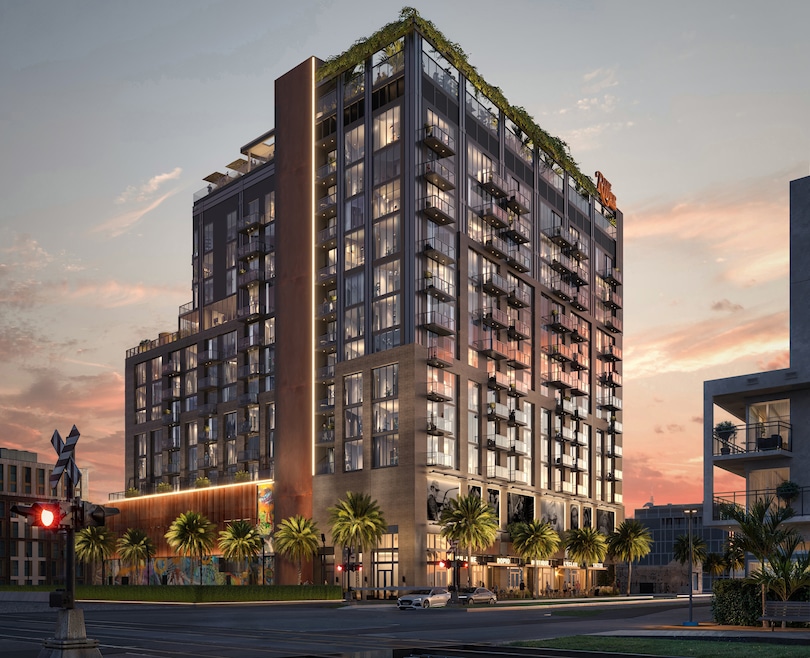Miami-based developers Ciprés and Rilea Group have sold a condominium unit at their boutique project under construction in Midtown Miami using Bitcoin in a direct wallet-to-wallet transaction they are touting as the first of its kind.
While cryptocurrency trades aren’t exactly a new concept in real estate, multiple developers globally are finding ways to incorporate digital assets into sales. The Rider Residences is the first to sell a unit directly between the buyer and developer with no intermediaries, Ciprés CEO Diego Ojeda said in an interview.
"In the Bitcoin community, people like to work at the wallet level, and no one had ever opened up a cold storage wallet for a project," Ojeda said. A cold storage wallet is a physical device used to secure cryptocurrency keys offline and disconnected from the internet, preventing potential hacks or theft.
City of Miami Mayor Francis Suarez went as far as to make a social media post celebrating the deal, writing on his official Instagram account that the "future of Miami real estate is here. The Rider … recently closed Miami’s first-ever true wallet-to-wallet condo sale in Bitcoin. Proving why Miami remains the Capital of Capital," he said.
The fully furnished condo traded for $528,900 in Bitcoin, with the buyer getting a “high fashion" rock-and-roll-style studio at the 12-story, 146-unit tower, said Ojeda. Units range from a studio measuring 386 square feet to a three-bedroom unit measuring 1,612 square feet. Prices begin in the $500,000s and go up to about $1.8 million.
The Rider's units include midcentury furnishings, design elements inspired by the 1970s and a $1 million art collection featuring photographs from the Los Angeles' Morrisson Hotel Gallery and London's Iconic Images Gallery. Ojeda said the property is an "homage to the industrial era", with exposed brick, steel and other "punk rock" elements.
There are no rental restrictions for units at The Rider. Once completed in late 2026, the property is expected to include a rooftop pool and speakeasy, a high-fidelity vinyl listening room, and Vespas and Harleys that residents can rent.
The Bitcoin deal
The actual transaction begins with the developers verifying the identity of the potential buyer and performing a background check, Ojeda said. The buyer also signs a purchase agreement where they acknowledge “that any fluctuation in the crypto between the time of us receiving it in our cold storage wallet, transferring it to the exchange, and then once it's in dollars, any increase or decrease is on them," Ojeda said.
The buyer then sends the Bitcoin from their wallet to one owned by the developers. From there, Ojeda and his team can trade it for cash on Kraken, one of the many digital currency exchanges.
But even though The Rider is using crypto for condo sales, the rest of the sales process remains “all the same,” said Ojeda. Agents still get their commissions — paid in cash, Ojeda said.
“Many of these crypto investors, obviously, they're huge on being on crypto and all committed, but at the same time want to take some chips off the table. And real estate has always been a great avenue for that,” Ojeda said. The Rider is waiving homeowner association fees for a year for cryptocurrency buyers.
Located along Miami’s 29th Street corridor, The Rider sits at 94 NE 29th St. at the “crossroads” of Wynwood, Midtown and Edgewater, some of Miami’s trendiest neighborhoods, said Ojeda. The area is set to receive a new commuter rail stop less than a block away from The Rider.
The developers broke ground on the project in March, and about 35% of the residences have been sold. Ojeda said the team is “deep” in the final stages of securing a construction loan.

